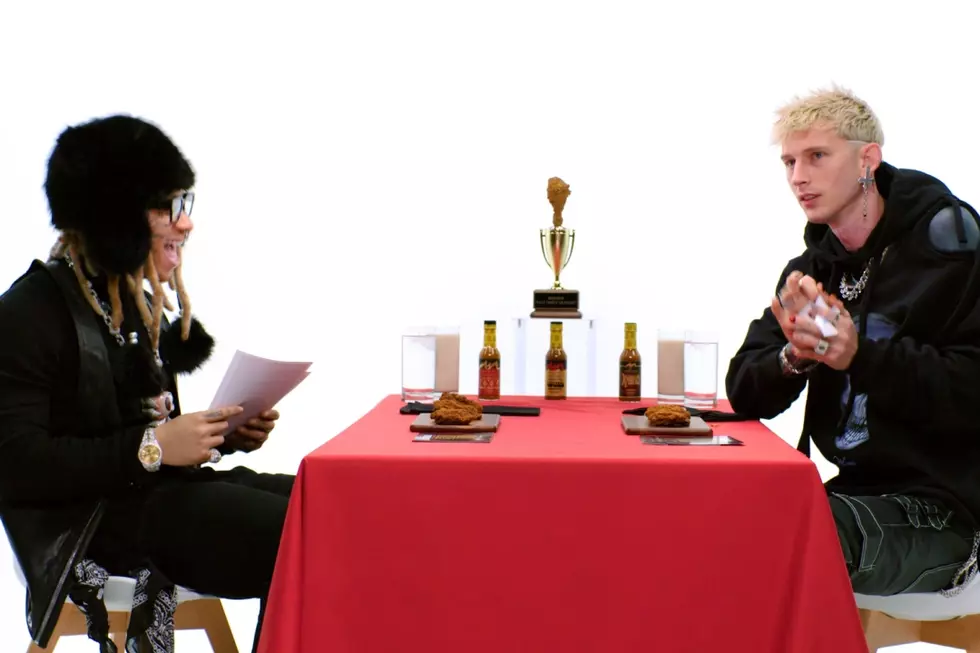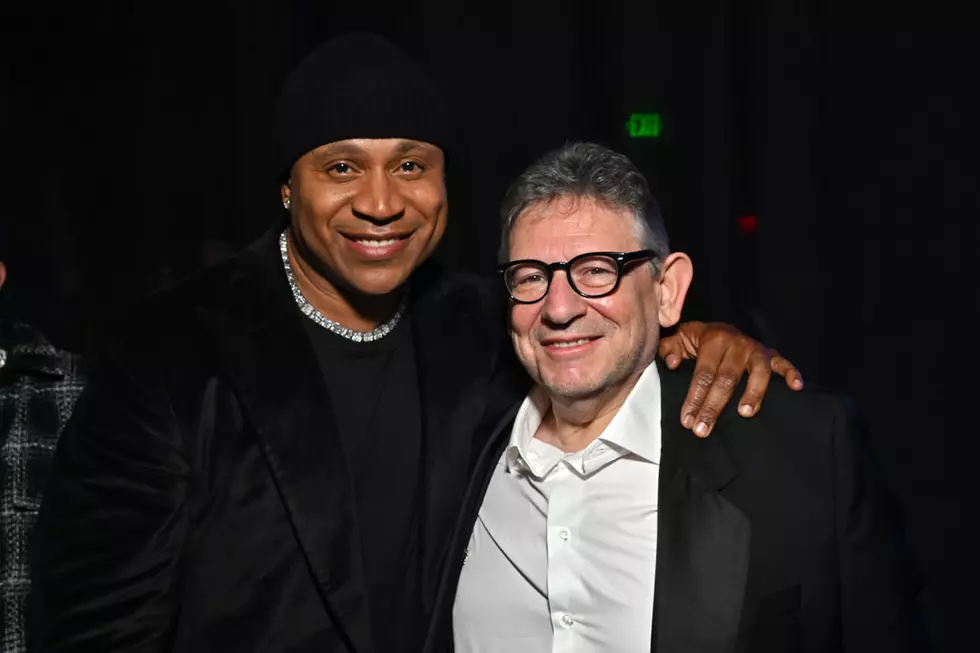
Trippie Redd Aims to Prevail at Everything in His Career
Show & Prove
Trippie Redd wants to prevail at everything he does.
Words: Paul Thompson
Editor’s Note: This story originally appeared in the Spring 2018 issue of of XXL Magazine, on stands now.
Deep inside a concrete hangar East of Downtown Los Angeles—enterprising real estate agents would say this is the Southern edge of the “arts district,” but it’s really a gray expanse of heavy industry—two fluorescent-yellow hazmat suits hang from a chain. There’s nobody inside either one, but that isn’t obvious at first, given all the commotion. There’s a couple dozen crew members working furiously, erecting a wooden tunnel, table-sawing 2x4s and moving massive racks of wardrobe.
An expensive-looking camera hangs precariously from two metal rods that have been fastened together. A handyman wears a shirt with the words “Original Gangsters” and the Sesame Street characters on it, as he hauls two toolboxes. A hulking actor stands calmly, while a stylist tries to get faux chainmail to sit properly over his pecs. The best-dressed person in the room is a young woman in a black and white striped dress, who apologizes profusely to the director for not being able to locate “enough cockroaches,” presenting him instead with a plastic box of live mealworms.
This is all in service of Trippie Redd, the bubbling Ohio rapper whose catalog is quickly becoming gospel for teenage rap fans all over the country. On this October day, he’s shooting a video for “Deadman’s Wonderland,” a bleeding heart single from A Love Letter to You 2, which he released online a couple weeks earlier. Just as a wardrobe worker is explaining to two actors how hot they’re going to get inside the hazmat suits, Trippie bounds in from outside, heading to a makeshift green room that’s more like something you’d cobble together to survive in the woods. He’s wearing a Tupac Shakur shirt, and his signature colorful dreads are falling in his face. He smiles and daps up anyone who says hi—the latest step in a charm offensive that’s made him one of the most beloved young artists of the moment.
Trippie was born Michael White III on June 18, 1999, and grew up in Ohio, between Canton and Columbus. “It ain’t really nothing to do in Ohio unless you on some business shit,” he explains. He was inspired to rap by his older brother, who died tragically in a car crash. By 2014, Trippie was experimenting in the studio, running through a series of formative projects that were influenced by artists like Lil Wayne, T-Pain, Gucci Mane and Ashanti. Things ramped up quickly. In 2016, he dropped a trio of short projects that garnered him serious buzz online and among executives. But, it was 2017 that saw him truly break out, with “Love Scars” hitting it big and the first A Love Letter to You becoming a cult favorite.
“Trippie is out there doing something new,” says Pierre “Pee” Thomas, the CEO of Quality Control Music who’s been serving additionally as one of Trippie’s co-managers. “People don’t listen close enough. He rap for real and he can sing for real, whether he’s popular on SoundCloud or not.” What Thomas means is that, in the last year or so, the term “SoundCloud Rap” has come to refer to a specific movement of young artists, many from South Florida. They share aesthetic sensibilities and a general disregard for the sort of classicist lyricism that many rap fans and critics still hold as the proper standard a hip-hop artist should aim for.
While Trippie is extremely popular among listeners who are also fans of the Lil Pumps and XXXTentacions of the world, his music seems geared to slightly more conventional ears. His delivery, and his willingness to move in and out of a half-sung delivery, echoes the bright tones of Swae Lee. When asked whom he admires, Trippie cites artists who cut across generational lines.
“Watch The Throne is my favorite project,” he says, shaking his head at the mere thought of Kanye West and Jay-Z’s interplay. “The production, the way they carried themselves, it’s amazing.” He says that to him, the standout cut on that record is “Made in America,” the celebratory song that’s aided by a hook from Frank Ocean. It’s a far sunnier track than the music that’s blown up lately for his stylistic peers—certainly sunnier than his own signature hit, the heartbroken “Love Scars.” But, it speaks to the sort of clarity of communication that Trippie aspires to.
“There’s so much shit I wanna get better at,” the aspiring rap star says, adding that he’d like to become a clearer communicator when he’s outside the booth. “I wanna prevail at everything. I wanna get better at the artsy shit, finding concepts, everything.” While he only turned 18 last summer, Trippie’s already conscious of the fact that he’s got sway over his younger listeners, and is measured and considered when asked what he hopes to leave them with. “I want you to look at me, look at the person I am, the music I create. And, I want you to try and better what I’ve done.”
None of which is to say that Trippie is anything short of cutthroat when it comes to the
rap game itself. “At the end of the day, it’s still competition,” he says, preparing to step out
onto the video set and fight ghoulish figures in an alien medical lab. “I want Grammys. I wanna be better than these people who are just here because they figured out they can make money from music. That’s got nothing to do with me, bro,” he says, laughing. “I’m really an artist. I really do this. I don’t need the money. It doesn’t matter to me.”
Check out more from XXL’s Spring 2018 issue including our two cover stories with G-Eazy and 21 Savage.
See Photos from G-Eazy and 21 Savage's XXL Magazine Spring 2018 Cover Shoot
More From XXL









